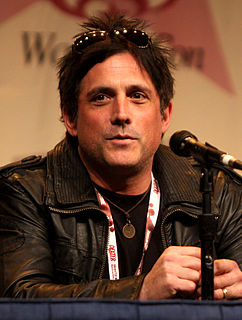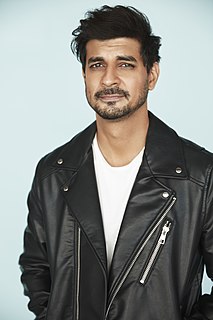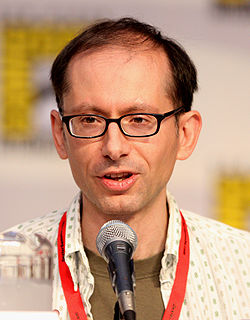A Quote by J.H. Wyman
We can't say anything, but just remember that, on Fringe, nothing is as it seems. There's always a little more to the story behind the story. He's definitely a large part, going forward. A lot of things will come full circle.
Related Quotes
We all dream dreams of unity, of purity; we all dream that there's an authoritative voice out there that will explain things, including ourselves. If it wasn't for our longing for these things, I doubt the novel or the short story would exist in its current form. I'm not going to say much more on the topic. Just remember: In dictatorships, only one person is really allowed to speak. And when I write a book or a story, I too am the only one speaking, no matter how I hide behind my characters.
The story, I like to say and remember, is always smarter than you—there will be patterns of theme, image, and idea that are much savvier and more complex than what you could come up with on your own. Find them with your marking pens as they emerge in your drafts. Become a student of your work in progress. Look for what your material is telling you about your material. Every aspect of a story has its own story.
I tell the story to you now, but in each telling the story itself changes a little, changes direction, and that in turn changes you and me. So be very careful not only in how you repeat it but in how you remember it, goslings. More often than you realize it, the world is shaped by two things -- stories told and the memories they leave behind.
I've always been into 'fast-paced, don't bore 'em, keep it moving along, stick with the story.' You know: tell a story the way I want to hear a story. I find it more rewarding to write for kids, but I also find it a little easier, because you can just let loose a little bit more in terms of fantasy and stuff.
Even if it’s a dumb story, telling it changes people just the slightest little bit, just as living the story changes me. An infinitesimal change. And that infinetisimal change ripples outward —ever smaller but everlasting. I will get forgotten, but the stories will last. And so we all matter —maybe less than a lot, but always more than none.
So, it's always different. Some stuff, you want to do because it's a part that you've never played. It's always for story. Sometimes there's a story that you really dig, but there's no part that you're interested in. Sometimes you read a story and you say, "I could do that. I've never done that before. I could do play that part.
I would say that Futurama: Bender's Big Score requires a lot of concentration to watch. It's a very complicated time-travel story. Part of the joke on that was just that the complexity would be over the top. This one is a more straight-forward science-fiction story, I would say. Alien invasion and people running in terror, that kind of thing, with a slight twist of there being an inappropriate physical relationship with the big octopus monster. We've got a straight-up science-fiction movie.
Part of the job is knowing how to use this medium in the most effective way for the story you're telling, so for me, to pick a genre I want to do is a little harder. I would say it's more about thinking, 'What genre will work for what kind of story?' And then, when all of that comes, I embrace it and run with it.




































